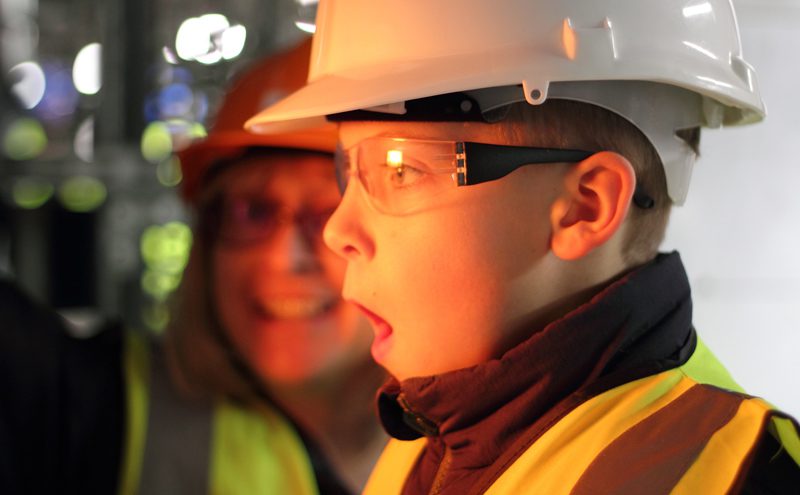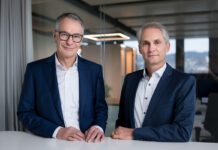
In late August, Colnbrook’s Lakeside Energy from Waste facility and Education Centre opened its doors to chemists young and old, in an event which shared some of the chemical wonders at work in the waste and recycling industry.
Organised by the Royal Society of Chemistry and Brunel University, the event was designed to encourage young people to explore and understand how chemistry is woven into the everyday process of generating sustainable electricity from rubbish.
The visitors started their day by checking out their ideas of what can be reduced, reused or recycled – as well as getting some practical experience of why putting the right stuff in the right bin is so important. Even those who thought they knew what could and couldn’t be recycled were surprised by the challenges of recycling complex, everyday wastes like coffee cups and juice cartons.
Once everyone had worked out what could be recycled, they were kitted out in protective clothing to tour the Energy from Waste facility – and find out what happens to the rubbish left over after as much as possible has been recovered for recycling.
Everyone watched in awe as – in echoes of Toy Story 3 – each giant grab picked up the weight in rubbish of an adult Tyrannosaurus Rex. They then watched the rubbish burn at 1000°C – about the temperature of lava erupting from a volcano.
According to the organisers, young and old alike were astonished to find out that the 450,000 tonnes of non recyclable rubbish burnt every year produces enough energy to power about 56,000 homes – a town roughly the size of Slough.
Justine Lai and her family enjoyed all of their visit and found it very useful and thought provoking.
“This visit was really fun, informative and practical – and we got the chance to see and think about our rubbish after it gets taken away. My eldest daughter particularly enjoyed being able to see some application of what she is learning in A level Chemistry,” said Justine.
Jane Essex, a lecturer at Brunel University and a specialist in Chemistry Education, rounded off the day by running some chemical experiments in the LKS Education Centre. The visitors rolled up their sleeves to check out what happened to different types of plastics when they were heated up over a Bunsen Burner, did some practical work with magnets and looked at the chemistry challenges of safely disposing of batteries and aerosols.
Jane, of the Chiltern and Middlesex Branch of the Royal Society of Chemistry, was very excited by the visit.
“The Lakeside Energy from Waste facility showcases a wide range of chemical principles in an awe inspiring setting. Hopefully, by combining practical experiments with a visit to a real life facility we can inspire more students to study STEM (science, technology, engineering and maths) subjects at school – and become the scientists of the future,” she said.







